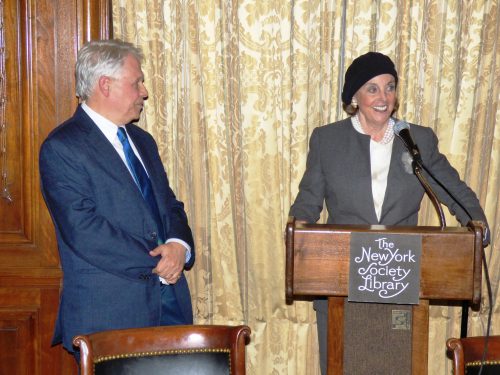March 5th, 2017
From slices of famous lives to cradle-to-grave studies and explorations of linked lives, the spring and summer biographies already generating interest in the publishing world run the gamut. As is often the case, political and literary figures dominate these books and contemporary musicians are also well represented. We’re highlighting here just some of the books likely to appeal to critics and readers, because of their subject, their author, or both, with the titles taken from Publishers Weekly, Kirkus Reviews, Library Journal, and Amazon. BIO members with upcoming releases are noted in bold type. And, keep in mind that publishing dates change, so some books may come out earlier or later than indicated here.
March
Lenin on the Train by Catherine Merridale (Metropolitan)
Broad Strokes: 15 Women Who Made Art and Made History (in That Order) by Bridget Quinn (Chronicle)
John Hay, Friend of Giants: The Man and Life Connecting Abraham Lincoln, Mark Twain, Henry James, and Theodore Roosevelt by Philip McFarland (Rowman & Littlefield)
Casey Stengel: Baseball’s Greatest Character by Marty Appel (Doubleday)
Isabella of Castile: Europe’s First Great Queen by Giles Tremlett (Bloomsbury)
Margaret Thatcher: A Life and Legacy by David Cannadine (Oxford University Press)
Being Elvis: A Lonely Life by Ray Connolly (Liveright)
Reagan Rising: The Decisive Years, 1976–1980 by Craig Shirley (Broadside Books) Charlton Heston: Hollywood’s Last Icon by Marc Eliot (Dey Street Books)
Writer, Sailor, Soldier, Spy: Ernest Hemingway’s Secret Adventures, 1935–1961 by Nicholas Reynolds (William Morrow)
Rabbi Akiva: Sage of the Talmud by Barry W. Holtz (Yale University Press)
Piazza: Catcher, Slugger, Icon, Star by Greg W. Prince (Sports Publishing)
Yitzhak Rabin: Soldier, Leader, Statesman by Itamar Rabinovich (Yale University Press)
Someone to Watch Over Me: A Portrait of Eleanor Roosevelt and the Tortured Father Who Shaped Her Life by Eric Burns (Pegasus)
Super Freak: The Life of Rick James by Peter Benjaminson (Chicago Review Press)
Pina Bausch: The Biography by Marion Meyer, translated by Penny Black (Oberon Books)
Finding Fibonacci: The Quest to Rediscover the Forgotten Mathematical Genius Who Changed the World by Keith Devlin (Princeton University Press)
The Ambulance Drivers: Hemingway, Dos Passos, and a Friendship Made and Lost in War by James McGrath Morris (Da Capo)
The Last Pagan Emperor: Julian the Apostate and the War against Christianity by H. C. Teitler (Oxford University Press)
You Say to Brick: The Life of Louis Kahn by Wendy Lesser (Farrar, Straus and Giroux)
Ike and McCarthy: Dwight Eisenhower’s Secret Campaign Against Joseph McCarthy by David A. Nichols (Simon & Schuster)
Richard Nixon: The Life by John A. Farrell (Doubleday)
Agent 110: An American Spymaster and the German Resistance in WWII by Scott Miller (Simon & Schuster)
Dynastic, Bombastic, Fantastic: Reggie, Rollie, Catfish, and Charlie Finley’s Swingin’ A’s by Jason Turbow (Houghton Mifflin Harcourt)
Barney: Grove Press and Barney Rosset, America’s Maverick Publisher and the Battle Against Censorship by Michael Rosenthal (Arcade)
Marilyn in Manhattan: Her Year of Joy by Elizabeth Winder (Flatiron Books)
Captain Fantastic: Elton John’s Stellar Trip Through the ‘70s by Tom Doyle (Ballantine)
Madame President: The Extraordinary Journey of Ellen Johnson Sirleaf by Helene Cooper (Simon & Schuster)
April
Obama: The Call of History by Peter Baker (Abrams)
When the World Stopped to Listen: Van Cliburn’s Cold War Triumph, and Its Aftermath by Stuart Isacoff (Knopf )
Four Princes: Henry VIII, Francis I, Charles V, Suleiman the Magnificent and the Obsessions that Forged Modern Europe by John Julius Norwich (Atlantic Monthly)
30 Days a Black Man: The Forgotten Story That Exposed the Jim Crow South by Bill Steigerwald (Lyons Press)
Thunder in the Mountains: Chief Joseph, Oliver Otis Howard, and the Nez Perce War by Daniel J. Sharfstein (W. W. Norton)
The Road to Jonestown: Jim Jones and Peoples Temple by Jeff Guinn (Simon & Schuster)
Jane Crow: The Life of Pauli Murray by Rosalind Rosenberg (Oxford University Press)
Letterman: The Last Giant of Late Night by Jason Zinoman (HarperCollins)
Incendiary: The Psychiatrist, the Mad Bomber, and the Invention of Criminal Profiling by Michael Cannell (Minotaur)
James Fenimore Cooper: The Later Years by Wayne Franklin (Yale University Press)
Sam Shepard: A Life by John J. Winters (Counterpoint)
Money Murder, and Dominick Dunne: A Life in Several Acts by Robert Hofler (University of Wisconsin Press)
Jane Welsh Carlyle and Her Victorian World: A Story of Love, Work, Marriage, and Friendship by Kathy Chamberlain (Overlook)
Prince Charles: The Passions and Paradoxes of an Improbable Life by Sally Bedell Smith (Random House)
The Black Hand: The Epic War Between a Brilliant Detective and the Deadliest Secret Society in American History by Stephan Talty (Houghton Mifflin Harcourt)
Golden: The Miraculous Rise of Steph Curry by Marcus Thompson (Touchstone)
Catherine of Aragon: An Intimate Life of Henry VIII’s True Wife by Amy Licence (Amberley)
The Destruction of Hillary Clinton by Susan Bordo (Melville House)
Leading Lady: Sherry Lansing and the Making of a Hollywood Groundbreaker by Stephen Galloway (Crown Archetype)
Jefferson: Architect of American Liberty by John B. Boles (Basic Books)
Alexander Hamilton’s Revolution: His Vital Role as Washington’s Chief of Staff by Phillip Thomas Tucker (Skyhorse Publishing)
My Fellow Soldiers: General John Pershing and the Americans Who Helped Win the Great War by Andrew Carroll (Penguin)
H. H. Holmes: The True History of the White City Devil by Adam Selzer (Skyhorse Publishing)
The Man Who Designed the Future: Norman Bel Geddes and the Invention of Twentieth-Century America by B. Alexandra Szerlip (Melville House)
Arnie: The Life of Arnold Palmer by Tom Callahan (Harper)
The Lowells of Massachusetts: An American Family by Nina Sankovitch (St. Martin’s Press)
Flaubert in the Ruins of Paris: The Story of a Friendship, a Novel, and a Terrible Year by Peter Brooks (Basic Books)
Monsters of the Ivy League by Steve Radlauer and Ellis Weiner (Little, Brown and Company)
The Dooleys of Richmond: An Irish Immigrant Family in the Old and New South by Mary Lynn Bayliss (University of Virginia Press)
May
Churchill and Orwell: The Fight for Freedom by Thomas E. Ricks (Penguin)
He Calls Me by Lightning: The Life of Caliph Washington and the Forgotten Saga of Jim Crow, Southern Justice, and the Death Penalty by S. Jonathan Bass (Liveright)
The Late Lord: The Life of John Pitt – 2nd Earl of Chatham by Jacqueline Reiter (Pen and Sword)
Wrestling With His Angel: The Political Life of Abraham Lincoln Vol. II, 1849–1856 by Sidney Blumenthal (Simon & Schuster)
Goethe: Life as a Work of Art by Rüdiger Safranski, translated by David Dollenmayer (Liveright)
Rising Star: The Making of Barack Obama by David Garrow (William Morrow)
Ernest Hemingway: A Biography by Mary V. Dearborn (Knopf)
He’s Got Rhythm: The Life and Career of Gene Kelly by Cynthia Brideson and Sara Brideson (University Press of Kentucky)
A Man and His Presidents: The Political Odyssey of William F. Buckley Jr. by Alvin Felzenberg (Yale University Press)
Benjamin Franklin: The Religious Life of a Founding Father by Thomas S. Kidd (Yale University Press)
The Loyal Son: The War in Ben Franklin’s House by Daniel Mark Epstein (Ballantine Books)
Founder of Modern Economics: Paul A. Samuelson: Volume 1: Becoming Samuelson, 1915–1948 by Roger E. Backhouse (Oxford University Press)
George Washington: A Life in Books by Kevin J. Hayes (Oxford University Press)
The Radium Girls: The Dark Story of America’s Shining Women by Kate Moore (Sourcebooks)
Jane Austen, the Secret Radical by Helena Kelly (Knopf)
The Flight: Charles Lindbergh’s 1927 Transatlantic Crossing by Dan Hampton (William Morrow)
Mozart’s Starling by Lyanda Lynn Haupt (Little, Brown)
Paradise Lost: A Life of F. Scott Fitzgerald by David S. Brown (Belknap Press)
Be Like the Fox: Machiavelli In His World by Erica Benner (W. W. Norton)
Ballad of the Green Beret: The Life and Wars of Staff Sergeant Barry Sadler from the Vietnam War and Pop Stardom to Murder and an Unsolved, Violent Death by Marc Leepson (Stackpole Books)
Nat Turner’s Rebellion by John V. Quarstein (Westholme Books)
Sting Like a Bee: Muhammad Ali vs. the United States of America, 1966–1971 by Leigh Montville (Doubleday)
Agent M: The Lives and Spies of MI5’s Maxwell Knight by Henry Hemming (PublicAffairs)
Otis Redding: An Unfinished Life by Jonathan Gould (Crown Archetype)
Last Man Standing: Mort Sahl and the Birth of Modern Comedy by James Curtis (University Press of Mississippi)
Augustus at War: The Struggle for the Pax Augusta by Lindsay Powell (Pen and Sword)
June
The King Who Had To Go: Edward Vlll, Mrs Simpson and the Hidden Politics of the Abdication Crisis by Adrian Phillips (Biteback Publishing)
The Working Class Republican: Ronald Reagan and the Return of Blue-Collar Conservatism by Henry Olsen (Broadside Books)
Kennedy and King: The President, the Pastor, and the Battle over Civil Rights by Steven Levingston (Hachette Books)
Max Eastman: A Life by Christoph Irmscher (Yale University Press)
Bob Dylan: A Spiritual Life by Scott M. Marshall (BP Books)
The Revolution of Robert Kennedy: From Power to Protest After JFK by John R. Bohrer (Bloomsbury Press)
The General’s Niece: The Little-Known de Gaulle Who Fought to Free Occupied France by Paige Bowers (Chicago Review Press)
Avenging the People: Andrew Jackson, the Rule of Law, and the American Nation by J. M. Opal (Oxford University Press)
Be Free or Die: The Amazing Story of Robert Smalls’ Escape from Slavery to Union Hero by Cate Lineberry (St. Martin’s Press)
The Martyr and the Traitor: Nathan Hale, Moses Dunbar, and the American Revolution by Virginia DeJohn Anderson (Oxford University Press)
Through a Glass, Darkly: Sir Arthur Conan Doyle and the Quest to Solve the Greatest Mystery of All by Stefan Bechtel and Laurence Roy Stains (St. Martin’s Press)
Chief Engineer: Washington Roebling, The Man Who Built the Brooklyn Bridge by Erica Wagner (Bloomsbury USA)
Young Radicals: In the War for American Ideals by Jeremy McCarter (Random House)
July
Go Slow: The Life of Julie London by Michael Owen (Chicago Review Press)
Marshal Malinovskii: Hero of the Soviet Union by Boris Sokolov, translated by Richard W. Harrison (Helion and Company)
Jane Austen at Home: A Biography by Lucy Worsley (St. Martin’s Press)
Henry David Thoreau: A Life by Laura Dassow Walls (University of Chicago Press)
Martin Luther: Rebel in an Age of Upheaval by Heinz Schilling and Rona Johnston Gordon (Oxford University Press)
Putin: His Downfall and Russia’s Coming Crash by Richard Lourie (Thomas Dunne Books)
Hannibal by Patrick N. Hunt (Simon & Schuster)
Collecting the World: Hans Sloane and the Origins of the British Museum by James Delbourgo (Belknap Press)
The Last Palestinian: The Rise and Reign of Mahmoud Abbas by Grant Rumley and Amir Tibon (Prometheus Books)
Coming of Age: The Sexual Awakening of Margaret Mead by Deborah Beatriz Blum (Thomas Dunne Books)
Making Contact: Jill Tarter and the Search for Extraterrestrial Intelligence by Sarah Scoles (Pegasus Books)
The World Broke in Two: Virginia Woolf, T. S. Eliot, D. H. Lawrence, E. M. Forster and the Year that Changed Literature by Bill Goldstein (Henry Holt)
Edward VII: The Prince of Wales and the Women He Loved by Catharine Arnold (St. Martin’s Press)
Queen of Bebop: The Musical Lives of Sarah Vaughan by Elaine M. Hayes (Ecco)
Ernesto: The Untold Story of Hemingway in Revolutionary Cuba by Andrew Feldman (Melville House)
August
Freud: The Making of an Illusion by Frederick Crews (Metropolitan Books)
Reckless Daughter: A Portrait of Joni Mitchell by David Yaffe (Sarah Crichton Books)
Patrick Henry: Champion of Liberty by Jon Kukla (Simon & Schuster)
One Hot Summer: Dickens, Darwin, Disraeli, and the Great Stink of 1858 by Rosemary Ashton (Yale University Press)
Sargent’s Women: Four Lives Behind the Canvas by Donna M. Lucey (W. W. Norton)
Soul Survivor: A Biography of Al Green by Jimmy McDonough (Da Capo Press)
PTL: The Rise and Fall of Jim and Tammy Faye Bakker’s Evangelical Empire by John Wigger (Oxford University Press)
The Kelloggs: The Battling Brothers of Battle Creek by Howard Markel (Pantheon)
Warner Bros.: The Making of an American Movie Studio by David Thomson (Yale University Press)
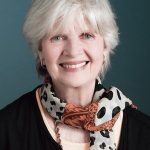

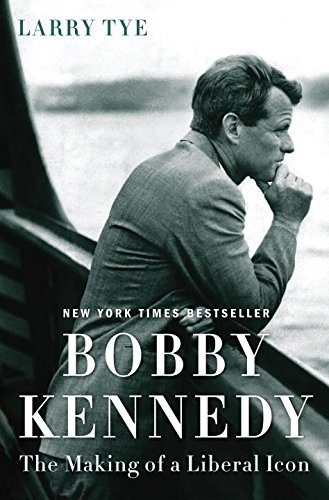
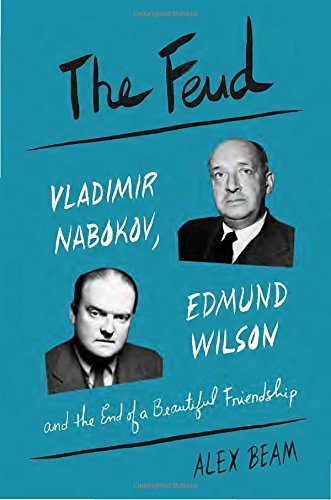
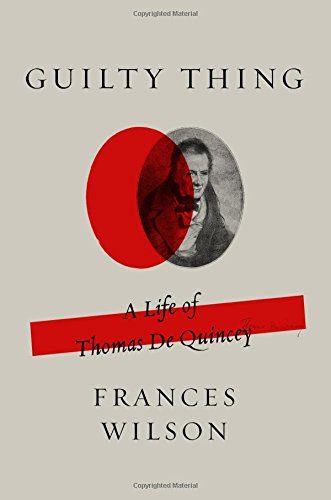
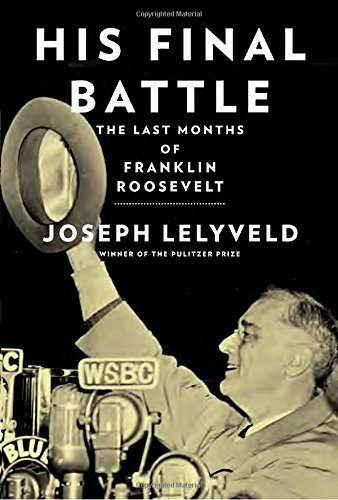
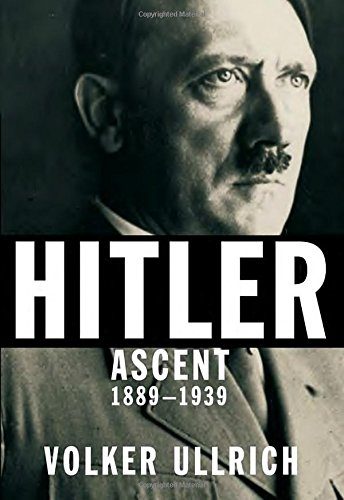
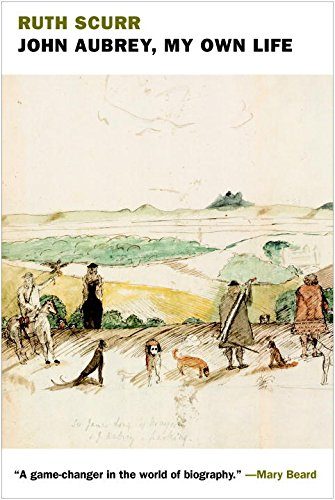
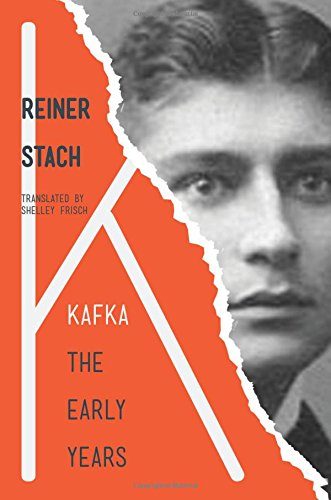
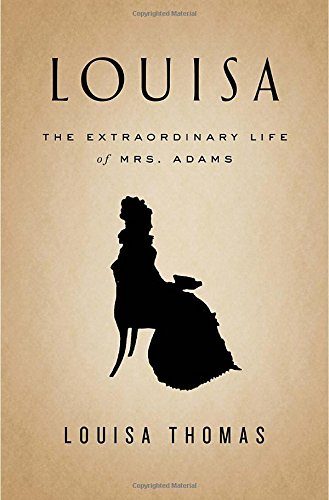
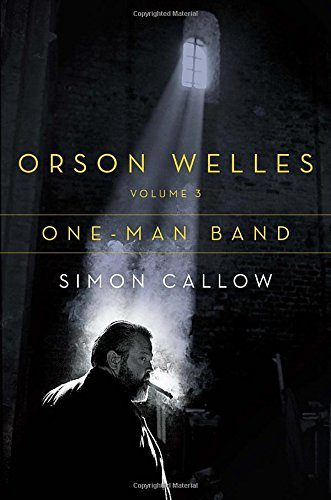
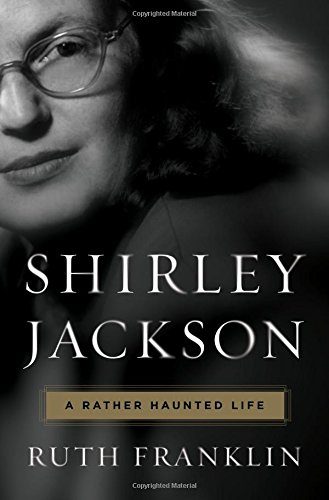
 More than two dozen distinguished biographers from the United States and Europe met to talk about their work on November 4-5 at a conference co-sponsored by BIO and the Oxford Centre for Life-Writing. The weekend-long conference, called Biography Beyond Borders, a colloquium on American and European biography, took place in Oxford and London and included a pre-conference lecture by Carla Kaplan and a keynote address by Hermione Lee. Her Penelope Fitzgerald: A Life won BIO’s Plutarch Award for best biography of 2014.
More than two dozen distinguished biographers from the United States and Europe met to talk about their work on November 4-5 at a conference co-sponsored by BIO and the Oxford Centre for Life-Writing. The weekend-long conference, called Biography Beyond Borders, a colloquium on American and European biography, took place in Oxford and London and included a pre-conference lecture by Carla Kaplan and a keynote address by Hermione Lee. Her Penelope Fitzgerald: A Life won BIO’s Plutarch Award for best biography of 2014.